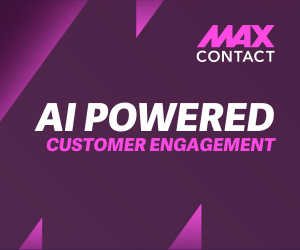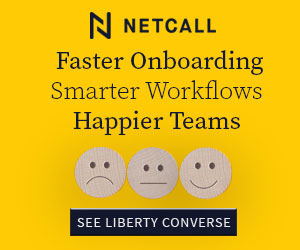Where is AI heading? It’s the view of Karl Roberts, of GCI, that the progress we see now will lead to a rise in the “super-agent”– expert human operators that spend most of their time dealing with highly-complex queries.
Artificial Intelligence (AI) is still in its infancy in terms of what’s possible, but we’re certainly seeing some major breakthroughs. AI has changed the way we use natural language and has vastly improved IVR systems, which are now second nature to use.
Automating the back office
The back office is equally exciting. We can learn a lot from the legal sector that is using AI to interrogate large volumes of data.
If a lawyer is researching a case, AI can be used massively to automate the laborious process and, for example, intelligently bring back precedents. This makes it much easier for legal teams to establish their argument and can boost win rates, as well as save time.
Examples such as this can be applied across a variety of industries and change the way complex queries are dealt with.
95% accuracy in speech recognition, just wait until we get to 98%
AI is also impacting natural language. When we want something, we are ingrained to ask for in a natural way and we’re now able to do that with systems, including IVR.
Look at the popularity of Amazon’s Alexa, for instance. We’re now looking at the death of keywords; you get far greater accuracy in terms of finding what you really want when you ask for it in a context-rich sentence, i.e. as you would when speaking to another person.
We’re now at 95% accuracy in speech recognition; once we get to 98% it truly becomes “game over” in terms of changing the old ways in which we interacted with systems.
Virtual assistants like Siri and Amazon Echo have helped “consumerise” this space, and that can only help business. People used to dislike IVR systems, but not only is there now much greater acceptance that it actually works, many trust it a lot more.
Of course, some will still “cling on” to the old ways of doing things, but this will naturally evolve with time. New-generation IVR will change everything, because you can say anything you like to it with a good chance of being understood.
AI is creating jobs
We are already seeing new job titles created that we couldn’t have envisaged before. A study by Deloitte showed that technology has created more jobs than it has taken over the last 140 years, whilst eliminating many of the dangerous and dull jobs we used to do.
So, it might be that many data-crunching, admin-type jobs will become more automated, but the role of humans to oversee and grapple with the more challenging tasks that AI can’t do (yet!) will continue and grow with business demand and adoption.
The rise of the “super-agent”
AI is enabling people to “self-serve” like never before. It’s slowly eliminating the routine and admin- intensive calls.
For instance, some local councils have even enabled the entire planning permission process to be automated, which has reduced hundreds of calls.
But of course, there will always be instances where people need to talk to a real human being. This means these “super-agents” will be needed that are true “experts” who can answer anything.
However, to get there we must make the hand-off from IVR to humans absolutely seamless.
We know that if customers don’t resolve issues they get tetchy and might take to Twitter, for instance, to criticise a brand. This supports my previous point about “super-agents” and the vital role they will have to play in preventing this.

Karl Roberts
There are problems with the early introduction of some technologies that haven’t instilled confidence. I have seen some evidence that 90% of chat bots just don’t work, as many are written by novices.
We must understand our customers, and AI is currently poor at empathy as robots don’t have emotional intelligence. But it will get there, and over time there aren’t any barriers that can’t be overcome.
Author: Robyn Coppell
Published On: 5th Apr 2018 - Last modified: 10th Apr 2018
Read more about - Guest Blogs, GCI





































